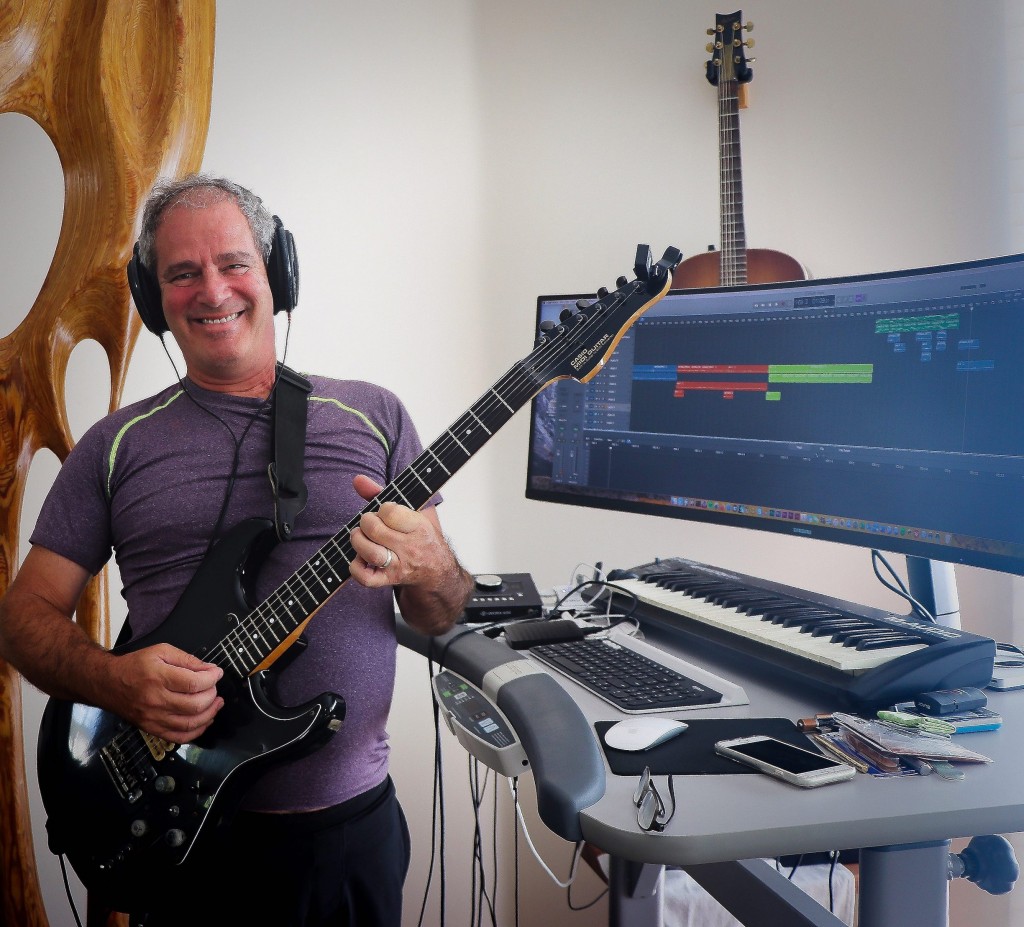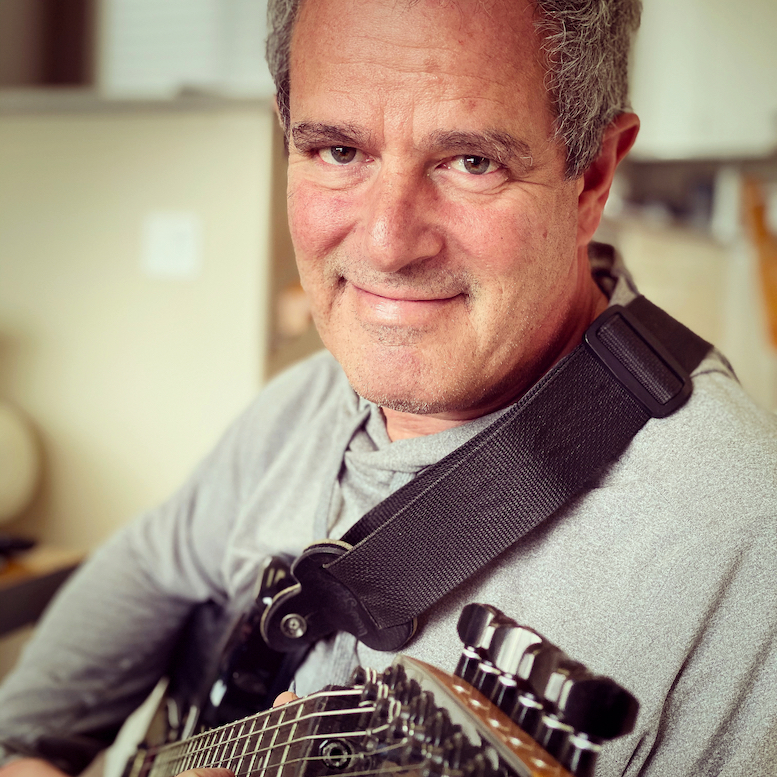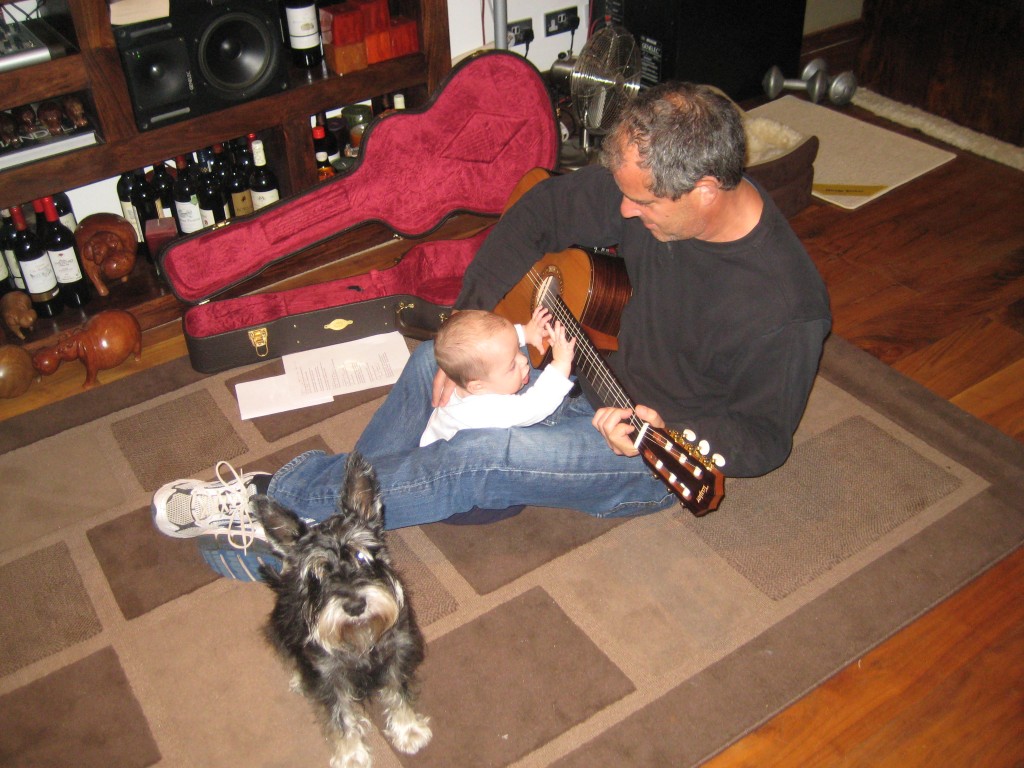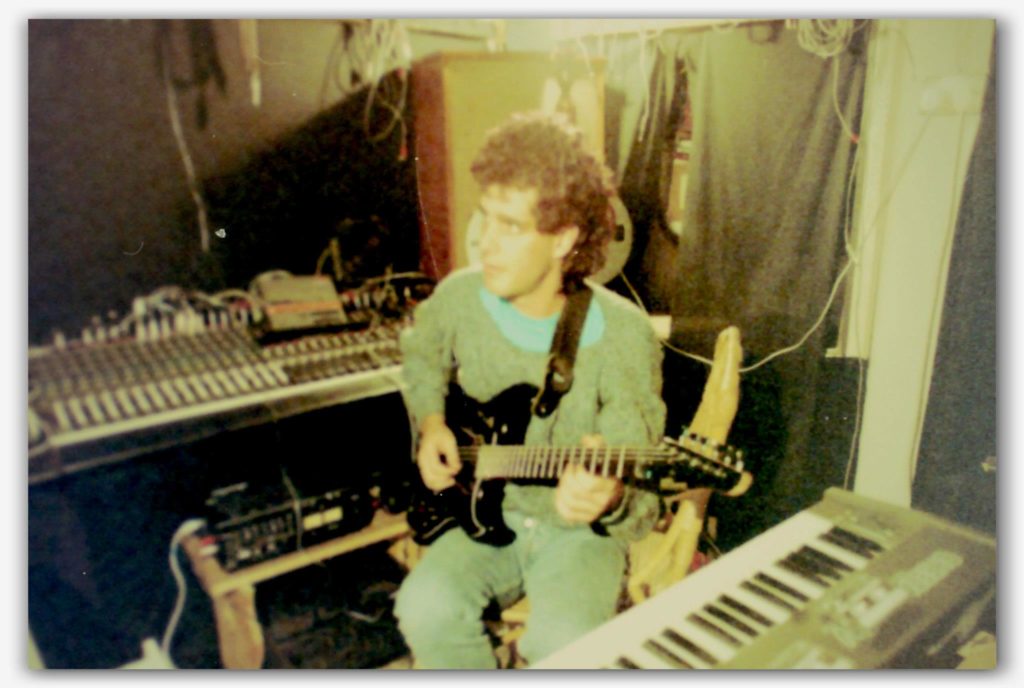
How to pay for music?

From Facebook I learned there are two kinds of people.
Those who WANT to pay musicians for their work.
And those who are Music composers/performers who WANT to be paid for their work.
There is a working formula in this relationship, not just for me, but for all musicians. An interface between the music lovers who WANT to pay for music, and the musicians who WANT to be paid, but cannot because……
The opportunity to sell music in the cottage industry style has gone. No more hard copy. No more $19.99 sales of new release CDs to help defray production costs. The only sales agreement left between these two types is; the seller providing the motivation to the buyer to go to their product on streamed media. Or, what seems to be the last bastion of actual download sales that pay royalties, Amazon. Much maligned for many reasons – BUT – I can disclose I get the best return in royalties from sales on AMAZON.
In the buyer allegory, if you ‘bought’ all 11 of my meditation albums and all 20 of my record label albums that include some of the worlds greatest musicians, and then played each one ten times each on streamed media, I would earn less than one hundredth of one cent.
That’s the reality of this sales transaction between the seller and the buyer. You might want to pay me, and I know that some do, but how do we cement this agreement in a way that reflects the actual worth in the transaction?
Big Music Commerce, three multinational global corporations owning 90% of revenue generated by music sales has ended earning opportunities for alternatives, who are not mainstream or tech guru SEO projects.
Like me.
And Pat Metheny.
And Ashley Slater.
And, basically all my accomplished musician friends who are billion-hit-challenged on YouTube.
Those of us unable to achieve billions of Tik Tok followers in this generation of corporate products, raking it in since Justin Bieberwitz created that Youtube followers business model. Excluding merit from any musical decision or reward. But who still want to keep making creative product at the same time as paying the rent and eating two or even three times a day. Earning an equitable amount for the years of training and effort in developing a creative process.
If you want to buy my music, and I can’t thank you enough for this life affirming declaration of support, then the only way to transfer actual money is to ensure some actual money changes hands. Listening for free on streamed media is not like buying an actual product that I benefit from in a merit based decision-making process based on your will to patronize a musician and not you simply listening to what the Streaming media algorithm picks for your digital profile.
Understanding the capitalist science behind why Kanye West sells millions to the 80% while Pat Metheny is an unknown to that same audience.

The inheritors of this wonderful new million dollar lifestyle, the YouTube owners, the Streamed media investors, do not reinvest in emerging talent based on any musical merit.
They have cut down the forest – and not replanted. Creating music costs money. Unless musicians are paid, there will be no more new music. That is because of food. Even musicians need to eat.
Musical merit is no longer a rewarding process. The market for music sales has migrated from what it was when a label signed a band and paid bills until them became adept at making a commercial sound that sold and made money for the investor. With no more investment in new content – you get music content that mirrors the demand. That is now summed up by ‘Wet Ass Pussy’. Music for those concerned with vaginal moistness. Performed by two lasses who must have been influenced by the Queen song ‘Fat Bottomed girls.’
Why now, as a young person making life choices, would anyone bother putting in those 10,000 hours learning mastery of a musical instrument when you can just get your billion hits with a snappy catchphrase, a pirated copy of auto-tune, and an audience of musical illiterates who will play what comes up next on their social media. With iPhone production values.
The majority of this new audience listen to music on their iPhones. Not a warm vinyl system with ‘Hi Fidelity’, representing the art of Sound Engineering and audio production values. There is no more ‘Sound engineering’ as was the case behind the great classic recordings we discovered in the pre digital age.
Popular music hit making now is such a simple formula – I am embarrassed to reveal it. Just arrange the words “Ho, Yo, Nigger, Black, Weed, Bitch, Fuck, DJ Khalid, ‘In the house’. And reference Tupac or Dre’ in varying ways with your own Trump inspired word salad to link them. Three word catchy Trumpisms – like ‘Wet Ass Pussy’ work best. Repeat three times over an app timing loop. Record on your iPhone/Garageband set up. Get your 10,000 school friends to click ‘Like.’ Sign away your every right to anything to Beyonces’ billionaire husband, and die at 21, by gunshot wound, or inappropriate drug choices.
The analogue generation had a sell by age of 27. The digital iPhone artist generation is done by 21.
But I digress. That is advice for the now generation. This piece is about us; reader and writer aware of why Pat Metheny and John Lennon are important. Two music interested parties who have already understood the octave. And why music is about more than dancing.
I wanna make/sell Music on merit that aims for some level of excellence – and you wanna buy Music on merit.
For many on my side in this binary consideration, reward would be buying a ticket to a live show and buying Merch from them there. Even printing a batch of vinyl and selling them at gigs.
I saw Steve Stills play a 500 seat pub gig – and he had some ten of his albums piled up – in vinyl. A box of 100 each. (I had a little look.) At the end of the gig they were all gone. I guess he earned more from selling that signed vinyl than payment from the venue. (I think he sold about 1,000 at $25 each. That’s $25k from a 500 seat pub gig that pays name acts around $5,000 total.) That’s one example of how analogue artists can still pay rent. But, for most, even the gigs are gone.
So what do do?
In my case, I have 11 Andrew Brel Meditation music albums, some 15 production albums, as well as five books, (and four short stories at $3 each). Ordering a paperback or kindle on Amazon means, as I own 100% of the rights, by the time it reaches my bank account I get 25% of your $ outlay.
It’s something better than nothing.
I have stopped complaining about Amazon and realized, it is the one seller who actually pays real money to a small label/publisher like myself.
Amazon and whats left of iTunes are the last sellers offering downloads, at average $1 per track for music. Essentially all royalties we receive now come from streaming media. Spotify and Youtube mostly.
An amount per play calculated by an algorithm identifying the music by a digital identifier. That amount is allocated by the streamers to the copyright owner. In streamed media there is no purchase of an artists work by a consumer. It is digital content identified by a registration tracked by an algorithm, generating an amount every time it is played. This is a long way from hearing ‘Bridge over Troubled water‘ on the radio and rushing to the record store to pay money to own a copy. Mostly the artists don’t have any connection to the listeners financially. It is the distributors – the ones who register the content for the algorithms to find. And because content is free on all the big platforms – its a numbers game. Owning content that generates billions of hits is what matters. Not the quality of the content. And obviously, not passing on revenue from that income to reinvest in new content.
I used to sell my music on CD’s. Usually in round numbers – I would make a gross of $10 on every sale.
If I ‘sold‘ you a copy of my new album release, African Meditation – now available on all streaming platforms, I would see a royalty payment of $.0026. Per play. (Average. Some pay less.)
If you like my new album and ended up playing it 100 times because you love it that much – I would be quids in. I would get $.026. I have some songs that are played over 100,000 times in a day. (If that was the CD age – that would have generated me literally $100’s of thousands of dollars a day. ) Curiously, the higher the number of plays, the lower the per unit payment appears to be. Don’t ask me why. (Getting accounting from the streaming companies is challenging. You would need a lot of time and money to get any meaningful insight.)
If you like my new album and want to enjoy it – you can.
It will cost you nothing. (Unless you pay a subscription fee to a streamed media company.)
On the up side – its great that you can hear my music very easily. Distribution problems are no longer a factor.
High quality recordings are just a click away, world wide.
I get to enjoy many plays in Taiwan. With no effort. But my fan base in Taiwan may know that they are enjoying my music and I am not really earning very much in this streamed arrangement. This presents a conundrum for both of us.
You Want to pay – but can’t.
I want to be paid, but can’t live on .0026c per play.
I certainly cant spend hours every day applying my best efforts towards creating new content, using state of the art expensive technology in this process. (Also, I love to eat every day.)
While I am successful beyond my wildest expectations – knowing my musical genre is not mainstream ‘popular music’ I don’t have the billions of plays on Tik Tok and YouTube that make streaming royalties work for me.
Yes – its true – many acts are making millions in streamed royalties from mainstream genres, like Kanye West and his Jesus model. But that scale of reward does not filter down the way it did in the CD sales days. Then, sure you made a lot if you sold a million, but even if you sold 20,000 you made enough to live well. And be an artist at the same time. Now the few at the top get big money – but the small independent gets their share at around $.00001 per play
My ‘10,000 hours’ of effort repeated many times towards acquiring the musical skills I have developed that should have a value, do not.
Yes, I do get thanks and recognition beyond my wildest dreams, often daily, and that is why I make music in the first place. I am not regretting the decision to advance these skills above more remunerative possibilities, like becoming a doctor or lawyer. Or music Industry executive. Just that it would be nice to get dollars as well as thoughts and gratitude. (Obviously no one who knows me sends me thoughts and prayers.)
My example in music and payment for music, repeated across a new generation means merit based music will soon be extinct as a process. A new musically illiterate consumer base will carry on buying iPhones and listening to Billie Eilish – or whatever 15 year old gets to be the next influencer owned by the big three.
Free musical advice to a would be musician?
The next generation of talent need not waste those 10,000 hours learning music, when they can make far more return by simply buying stock in Apple. or a similar upward tech company. Money invested in learning music will almost definitely provide better ROI invested in the market. If its money you want, don’t invest in learning music.
Music as we knew it will be something student can learn about in the Museum of Music, where the old records and stories will end up. Once the last generation of great professionals can no longer tour, what do you have to look forward to?
Or to paraphrase, why is Elton John, The Eagles, Fleetwood Mac and such, still selling out stadiums. In their 70’s. Will Megan Thee Stallion be packing in 80,000 at Wembley 25 years from now, all swaying with lighters lit singing along to every word of “Wet Ass Pussy”.
If you want to support my music and encourage me to start on my 12th album of meditation music, or even, more collaborative albums with great world class musicians whom I would love to work with again, then one way to pay – is to buy some actual produce.
My books and / or my music. Even if you enjoy the convenience of listening to the music for free. Or by becoming a patron.

The migration from record stores and radio introducing new artists has left us with algorithm led consumerism based not on merit – as was the case when I was in that teenage captive market demographic – but on the financial benefit of those smart enough to work the algorithms into billions of hits for their monetary gain, shared with their investors and partners, none of whom are musicians. No connection with musical merit.
Yes, these #1 hit artist copyright owners represent a skill set, but its not a creative skill that begins with 10,000 chorus of practice. Or an informed educational musical treat for the listener. Its just the herding of sheeple into algorithm led corrals.
Its shrewd business investment – not in musical talent – but in those human resources adept at linking advanced coding skills with hardware sales and intelligent copyright acquisition, able to move 0’s and 1’s around into making a target-song show a billion hits. Music for sheeple. Led by bots. Music used to make you smarter – like Bach. Music from this age is the converse.
Its working out great for the Tik Tok generation. They grow up on what the algorithms feed them and most will never even discover music in the traditional sense that we remember.
Eventually – without patronage – musicians will not be able to survive with the reward for their musical efforts. The creative accomplished musician, master of a life’s disciplined dedication to a craft that has impacted so much on our development away from Dark ages, will cease to exist.
No more will a wondering keen spirit with curiosity and a sense of adventure, like Keith Richards, be able to study the Blues in the heroin dens of America’s deep south and follow that musical journey to a personal fortune based on musical achievement. No more will a Lennon and MCartney be able to compete fiercely to advance their compositional skills to unparalleled heights. Because they will starve to death long before they get to the ten million hits needed to pay the bills for the Gibson guitars.
No more will a Pat Metheny be able to spend decades mastering musicality that raises the bar for an entire planet, on the income of record sales by music appreciating buyers. No label would speculate on producing recordings for unknown players experimenting with the boundaries of music the way ECM did in the 80’s.
Even for a giant like Pat Metheny, his reward in this age, will be at best a few million hits of his best known work, played by students of music and historians recording human accomplishment – at .00026c per play. Divided by whatever deals were done at the time of recording; In Total – Simply not enough. The ratio between effort and reward is askew. The Investors in the streamed media models are driving Foreign. The musicians are walking local.
Pat Metheny’s entire audience measured in ‘plays’ over his lifetime is below ‘Gangham style’ by that super accomplished musician from South Korea.
‘Tiz the duty of the wealthy man to patronize the artisan‘.
I was told that more than once when being booked to entertain rich people in their homes. Music does have a long history of patronage.
Now;
“Tis the duty of the music fan to Venmo pay the music man.”
(Poetic license does not assume gender discrimination.)
Patronage is one option for paying musicians. Not because your wealthy, but because you attach a value to creative work and want to see the creative continue on their journey. An honor system of sorts. Where you pay the creative directly, in a binding relationship that gives you a personalized copy of their life’s work.
Possibly? The artists Anthology. Delivered on CD storage, or a flash key. Through post. Made to order by the creative, for the patron. By getting in touch with the artist directly and offering some actual support.
The internet makes all manner of comunication and distribution of bespoke content possible.
THE VENMO OPTION
You can’t buy a CD of AFRICAN MEDITATION. You can enjoy it on all streamed media, and I will get some payment; BUT If however you would like to patronize me in a way that makes a difference – proportionate to what I would have got before hard Copy sales ended, then there is a Venmo option.
For $200. (Or any higher amount of your choosing, an inverse honor system of what its worth to you) I will reply to your email request to send whatever you choose from all of my commercially released creative work;
Music and Books.
Click HERE FOR VENMO After which I will email you for a postal address and send you whatver you choose from my 40 years of words and music.
The Andrew Brel anthology of books and meditation music.


Comments are closed, but trackbacks and pingbacks are open.